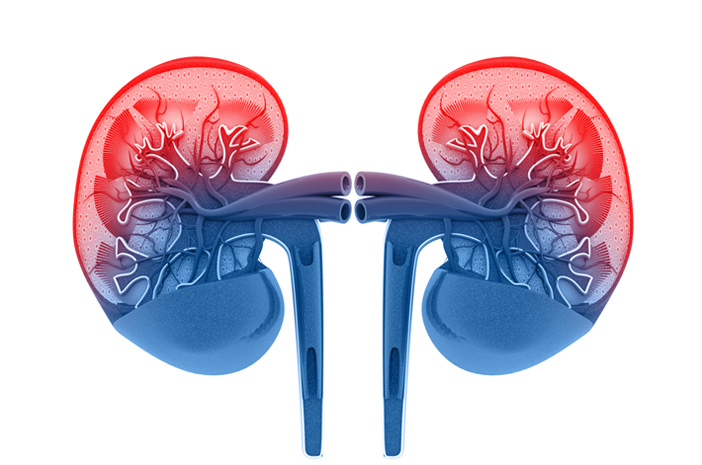What is Kidney Failure?
Kidney failure is a condition where one or both kidneys can no longer function properly. Sometimes, kidney failure is temporary and can appear quickly.
But on the other hand, kidney failure can also be a chronic condition that will get worse slowly over a long time.
Therefore, kidney failure can be divided into two main types, namely chronic and acute kidney failure. It is important to remember that the kidneys are a pair of organs located in the lower back area of the body.
This organ has several important functions in the body. One of them is removing toxins or waste from the body.
The poison will later enter the bladder and be excreted when a person urinates. If the kidneys lose their ability to filter waste or toxins from the blood, kidney failure will occur.

Causes of Kidney Failure
The majority of acute kidney failure occurs due to reduced blood flow to the kidneys. Here are some things that can reduce blood flow to the kidneys:
Low blood volume.
The amount of blood pumped by the heart is below normal.
Disorders of blood vessels.
The effect of certain drugs can interfere with the blood supply to the kidneys or even disrupt the kidneys. For example, non-steroidal anti-inflammatory drugs (NSAIDs), drugs for hypertension, and certain antibiotics.
Dye liquid, used in body imaging and X-ray tests.
Apart from reduced blood flow to the kidneys, acute kidney failure can also be triggered by two causes, namely:
Blockage of the urinary tract.
Direct damage to the kidneys.
Risk Factors for Kidney Failure
There are several things that can increase the risk of developing acute kidney failure, namely:
Have a high risk of suffering from urinary tract obstruction.
Suffering from diabetes.
Suffering from liver disease.
Blood vessels in the arms and legs are blocked.
Got a serious infection.
Experiencing dehydration.
Aged 65 years or older.
Currently in intensive care in hospital.
Symptoms of Kidney Failure
In the early phase, kidney failure often does not show any symptoms and can only be detected through laboratory tests.
However, this disease can develop very quickly, causing sufferers to experience several symptoms, such as:
Reduced urine production.
Dazed or confused.
Nausea and vomiting.
Hard to breathe.
Fluid buildup in the body or edema.
Fatigue.
Dehydration.
Pain in the chest.
Back pain.
Stomach ache.
High blood pressure or hypertension.
Sleep disorders.
In addition, keep in mind that kidney failure can cause varying symptoms in each person.
The symptoms that appear will depend on the severity of the sufferer.
Kidney Failure Treatment
Generally, people with acute kidney failure undergo treatment in hospital.
However, if the symptoms have improved, they are allowed to undergo outpatient treatment with the following conditions:
It is still recommended that patients consult with a urologist and kidney specialist.
Treating infections that cause acute kidney failure.
Increase your consumption of mineral water to avoid dehydration.
Perform blood tests to monitor creatinine and salt levels.
Stop any medication that has a risk of causing acute kidney failure.
People with kidney failure should undergo hospital treatment if:
There is a risk of urine blockage.
Diseases that cause acute kidney failure require immediate treatment.
The patient’s condition is getting worse.
The patient suffered from complications of acute renal failure.
For people who experience severe acute kidney failure, dialysis or dialysis procedures may be needed, because the kidneys can carry out their normal function.


No Responses